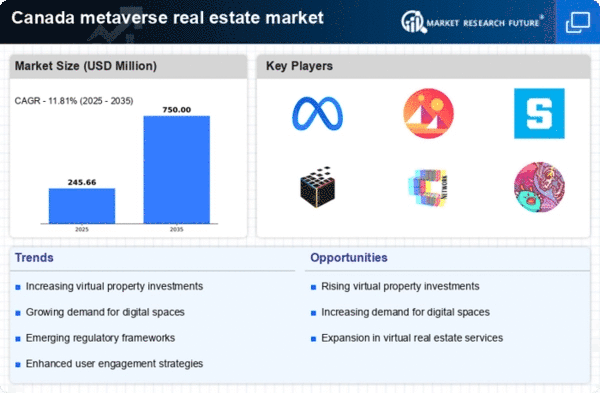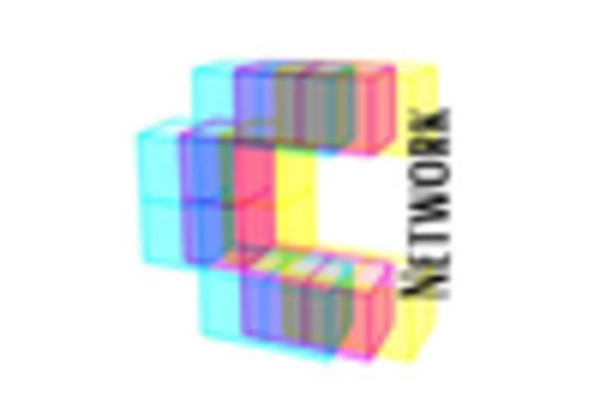Rise of Remote Work Culture
The shift towards remote work has transformed the metaverse in-real-estate market, as individuals seek properties that accommodate their new lifestyles. With more Canadians working from home, there is an increasing demand for virtual office spaces and collaborative environments within the metaverse. This trend suggests that real estate developers are likely to invest in creating virtual properties that cater to remote workers, potentially leading to a 25% increase in virtual office listings over the next year. The metaverse in-real-estate market is thus adapting to these changing needs, offering flexible solutions that align with the evolving work culture.
Integration of Blockchain Technology
Blockchain technology is emerging as a key driver in the metaverse in-real-estate market, providing enhanced security and transparency in property transactions. In Canada, the implementation of blockchain for real estate deals has shown a potential reduction in transaction times by up to 50%. This technology allows for secure digital contracts and ownership records, which can attract more investors to the metaverse. As the industry continues to embrace blockchain solutions, the metaverse in-real-estate market is likely to experience increased trust and efficiency, fostering a more robust investment environment.
Increased Interest in Digital Ownership
The concept of digital ownership is gaining traction within the metaverse in-real-estate market, as more individuals recognize the value of virtual assets. In Canada, the number of users engaging in virtual land purchases has risen by 40% in the last year, indicating a growing interest in owning digital properties. This trend is likely to encourage real estate developers to create more virtual spaces, catering to a diverse range of buyers. As the understanding of digital ownership expands, the metaverse in-real-estate market may see a significant influx of investment, further solidifying its position as a viable alternative to traditional real estate.
Technological Advancements in Virtual Reality
The metaverse in-real-estate market is experiencing a surge due to rapid technological advancements in virtual reality (VR) and augmented reality (AR). These innovations enhance user experiences, allowing potential buyers to explore properties in immersive environments. In Canada, the adoption of VR technology in real estate transactions has increased by approximately 30% over the past year. This trend indicates a growing acceptance of virtual property tours, which can significantly reduce the time and costs associated with traditional viewings. As more real estate firms integrate these technologies, the metaverse in-real-estate market is likely to expand, attracting tech-savvy investors and buyers who seek innovative solutions in property transactions.
Growing Demand for Customizable Virtual Spaces
The metaverse in-real-estate market is witnessing a growing demand for customizable virtual spaces, as users seek personalized environments that reflect their unique preferences. This trend is particularly evident in Canada, where the desire for tailored virtual properties has led to a 35% increase in requests for customizable designs. Real estate developers are responding by offering more options for personalization, which could enhance user engagement and satisfaction. As the market evolves, the ability to create bespoke virtual environments may become a crucial factor in attracting buyers, further driving growth in the metaverse in-real-estate market.
















